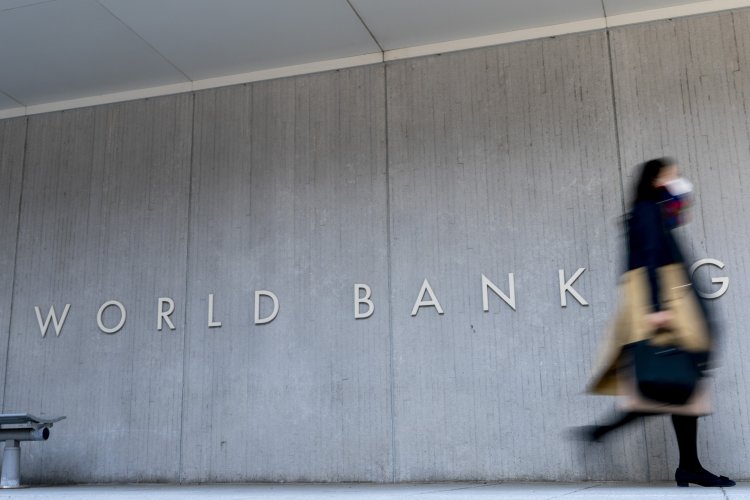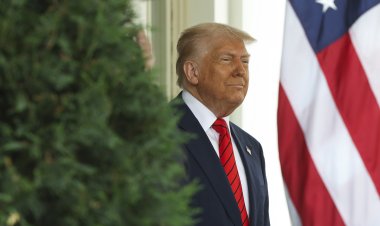World Bank's climate strategy changes during Trump administration's unpredictability
The bank's communication regarding climate issues highlights a careful equilibrium between the institution and the U.S., its biggest shareholder.

As the leader of the largest public development financier, World Bank President Ajay Banga has been prioritizing job creation and promoting energy sources more palatable to Republicans, such as nuclear power and natural gas. He has defended the institution's climate efforts when asked, stating that the bank’s climate investments align with its primary mission of alleviating poverty. However, this shift in messaging indicates a departure from Banga’s assertive public defense of the bank’s climate initiatives during President Joe Biden's administration, which appointed him partly to enhance green lending.
Former officials and several individuals familiar with the bank's internal dynamics, who spoke on condition of anonymity, have indicated that the World Bank is downplaying its climate messaging for self-preservation, even though its underlying climate strategy remains unchanged.
“Now, do you want to scream this all loudly? Probably not in this environment. You don’t get much from doing that,” noted Samir Suleymanov, a former World Bank official who led its strategic initiatives unit.
The bank's communication on climate issues is a balancing act between the organization and the U.S., its largest shareholder. The U.S. has traditionally supported the part of the bank that aids the world’s poorest countries, with the Biden administration pledging $4 billion before leaving office. This funding remains subject to approval by a Republican-controlled Congress, and withholding it could hinder investments in poorer nations facing crises related to climate change, inflation, and food insecurity.
Banga insists that he has not altered the bank's commitment to climate finance, stating that the goal is to allocate 45 percent of its annual lending to climate-related projects by fiscal year 2025.
“Remember, we have a board which has representatives of all our shareholders and all these words and thinking go through their system,” Banga remarked on a call with reporters ahead of the bank’s annual spring meetings, set to begin Monday alongside the International Monetary Fund.
Recently, he has also discussed an “all of the above” energy strategy that he intends to present to the board in June, emphasizing a push to revive investments in nuclear energy, partly to support data centers.
“There is no reason why a country in Africa should not care about affordable, accessible electricity,” Banga said during a press conference. “And it includes gas, geothermal, hydroelectric, solar, wind and nuclear where it makes sense.”
Banga has previously characterized natural gas as representative of the disparity between developed nations, which have thrived on fossil fuels, and poorer nations rich in oil and gas being advised against tapping those resources.
“The rules of energy access are not applied equally,” he remarked. Additionally, he has advocated for gas as a transition fuel, asserting in 2023 that “all we’re trying to do is reduce investment in fossil fuels.”
The bank's climate initiatives come at a time when several of Trump’s allies are advocating for a complete U.S. withdrawal from the World Bank, claiming its mission conflicts with American national interests and aligns with China. An evaluation of U.S. participation in international organizations, including the World Bank, is expected in August.
Navigating this high-stakes environment requires the World Bank to reconcile its earlier commitments to channel nearly half its financing into climate initiatives while avoiding provoking Trump’s ire. The bank’s green initiatives encompass support for countries to adapt to rising temperatures by enhancing infrastructure or fostering drought-resistant agriculture, as well as aiding transitions to cleaner energy and transportation.
A World Bank Group spokesperson maintained that the bank's agenda has remained clear and consistent.
"For two years, we've been working to make the Bank faster, more efficient, and focused on creating jobs," the spokesperson noted, emphasizing that job creation is intertwined with clean air and water, reliable power, and support for the private sector.
"The realities of the countries we serve—and the diversity of the challenges they face—mean we match solutions to context and rely on every tool at our disposal to deliver," the spokesperson added. "Climate finance—like shifting freight to rail or building drip irrigation—is part of that mix, but no more and no less important than the rest. That’s what we’ve been saying. That’s what we’ve been doing."
Banga has highlighted that projects under the bank’s climate financing provide broader economic benefits, which can lead to job creation and help mitigate migration.
However, his previously staunch advocacy for climate initiatives has fueled animosity towards the bank from Trump’s circle. Conservative economist Stephen Moore, who co-authored a chapter urging U.S. withdrawal from the bank, criticized its climate agenda for diverging from its developmental mission, claiming it has made financing fossil fuel projects more challenging, even for populations lacking electricity access.
“It was so outrageous that this is what they were doing. It was almost like they wanted to keep countries poor,” Moore expressed in an interview.
While the prospect of a U.S. exit from the World Bank seems unlikely—partly because such a move would entail relinquishing shares to nations like China eager to acquire them—the bank's climate work and its broader international focus are unlikely to escape scrutiny from an administration prioritizing American energy interests.
This situation marks a departure from the dynamics of Trump’s first term, according to Karen Mathiasen, a former acting U.S. representative to the World Bank, who observed a more cooperative atmosphere then.
“There was a much more open attitude towards working with these institutions and kind of focusing on traditional Republican issues like fiscal responsibility,” she noted. “Now everything feels very hostile and adversarial.”
Banga has underscored the bank's effectiveness, pointing out its efficient use of capital, its initiatives to engage the private sector, and efforts to refocus on its essential mission of poverty alleviation.
“Our ultimate goal is to help countries build dynamic private sectors that convert growth into local jobs – not by shifting work from developed countries, but by unlocking opportunity where people already live,” he stated in an opinion piece published in the Financial Times on April 1, which notably did not mention climate change. This marked a stark contrast to Banga’s earlier remarks, where in a speech at the World Bank and IMF’s annual meetings in October 2023, he emphasized the imperative to develop a new strategy to combat climate change alongside other global challenges.
“In addition to the efforts already underway to bring more efficiency and focus on core mandates, which may partly address Trump administration concerns, I think there is willingness to go further, especially when it comes to greater flexibility in how the institutions think about energy investments,” said Matt Swinehart, a former Treasury official now managing director at Rock Creek Global Advisors.
The IMF, the World Bank’s sister organization, has also moderated its climate rhetoric. Kristalina Georgieva, managing director of the International Monetary Fund, focused on trade and global growth in her recent speech, avoiding any mention of climate change.
An IMF spokesperson explained that the speech “understandably focused on the most pressing issue facing the global economy at this juncture – the impact of ongoing trade tensions, market volatility and uncertainty on the outlook, and how policymakers should respond in this context.” The spokesperson did highlight that climate-related events are included on the agenda for the spring meetings.
“I think the institutions right now are walking a tightrope between policing the biggest shareholder and having legitimacy with the rest of the members,” assessed Kevin Gallagher, director of the Global Development Policy Center at Boston University.
To adapt to current challenges, the bank has implemented changes to enhance its lending capacity and introduced Climate-Resilient Debt Clauses, allowing countries to postpone loan payments in the wake of disasters, part of its reform agenda initiated under Biden. It has also updated its mission of eradicating poverty to include the phrase “on a livable planet.” Many of these initiatives have garnered support from other shareholders, and Banga has acknowledged that his new energy strategy will require shareholder approval.
Several countries have reaffirmed their commitment to support climate initiatives through multilateral banks. For instance, France recently underscored the need for "a massive scaling up of public finance" to both alleviate poverty and protect the planet through its “Paris Pact for People and the Planet,” pledging to bridge divisions on multilateral development bank boards and the IMF.
Some have welcomed the shift in messaging at the bank.
The previously restrictive emphasis on clean energy had sidelined other projects capable of reducing emissions, remarked Suleymanov. He noted that the rhetorical change would not detract from the renewable initiatives the bank has collaboratively planned with other governments.
“It may sound funny, but there is sort of a relief that this kind of pretend thing is over,” he concluded. “The ideological underpinning took so much space. Everybody had the feeling they were caught in the game, like this is something that they have to do, but not necessarily with a clear practical outcome in mind.”
Mark B Thomas for TROIB News
Find more stories on the environment and climate change on TROIB/Planet Health












